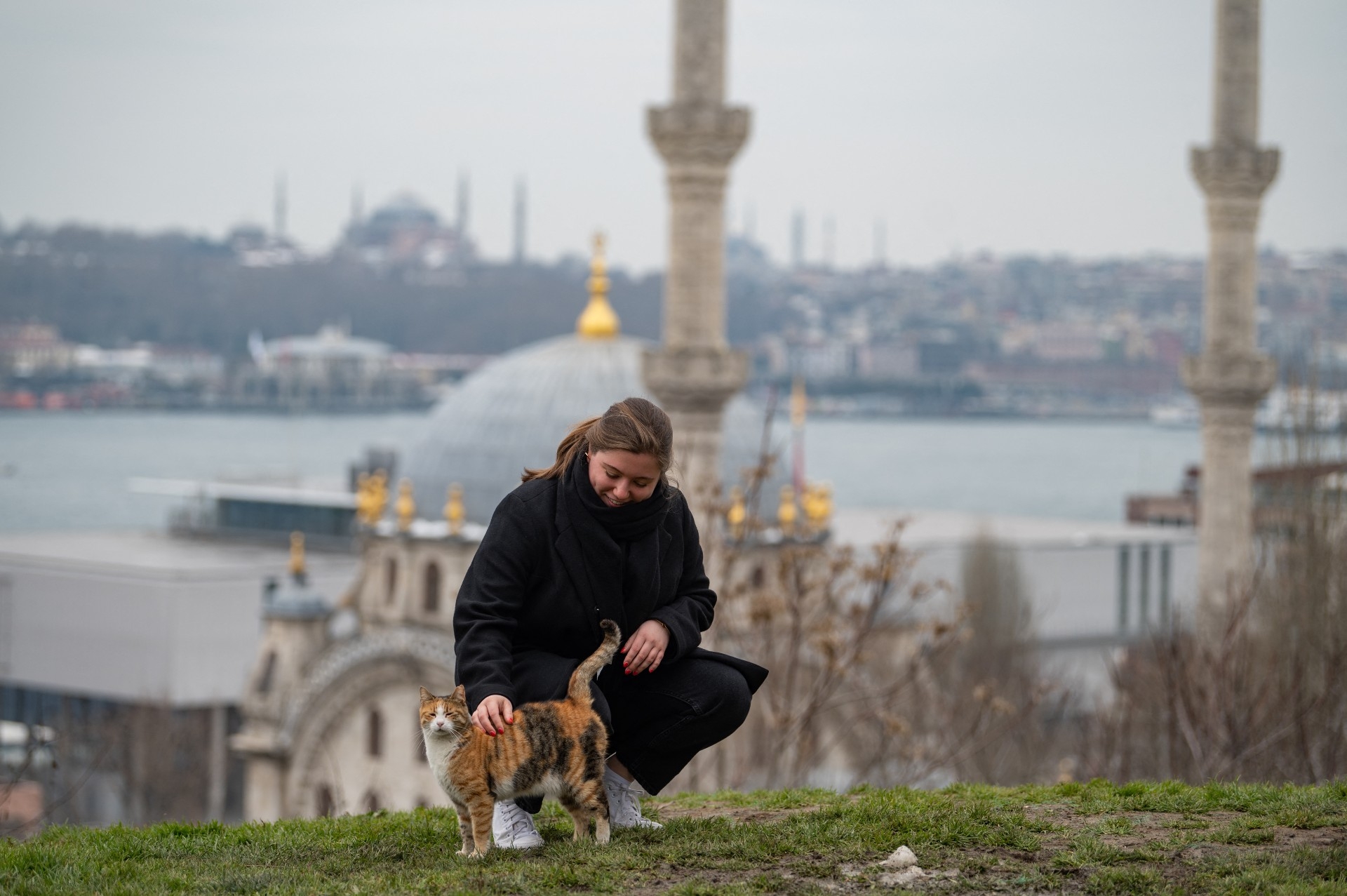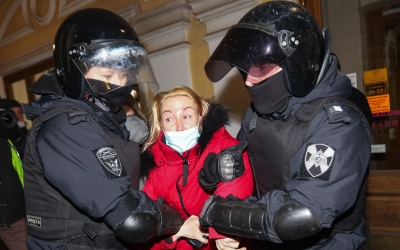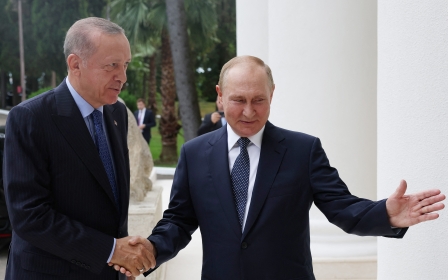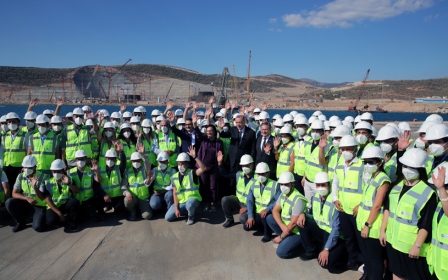Russians buy Turkish citizenship to establish new lives and businesses

Turkey’s citizenship-by-investment scheme has been fuelled by a wave of Russians who fled their country after the invasion of Ukraine and are looking for ways to establish new businesses and lives.
Ankara’s path to citizenship for investors has been very popular for people in the Middle East since it was launched in 2018. But Russia’s war in Ukraine has spurred a new wave of investors. Crippling international sanctions on Russia and increasing repression of dissent have pushed Russians to look for opportunities in Turkey - a country previously largely viewed by them only as a holiday destination.
Between 2018 and 2021, around 20,000 foreign citizens, led by Iranians, Iraqis, and Afghans, acquired Turkish citizenship by purchasing real estate or investing in Turkish assets to the tune of a minimum of $250,000.
The Turkish interior ministry doesn’t regularly release data on investment, but Middle East Eye's calculations suggest a minimum of $5bn must have been brought into Turkey, with that number potentially rising to $10bn or more.
New MEE newsletter: Jerusalem Dispatch
Sign up to get the latest insights and analysis on Israel-Palestine, alongside Turkey Unpacked and other MEE newsletters
There was some domestic criticism of the scheme after it launched, accusing it of “distributing cheap citizenship”, so in mid-June the Turkish government introduced a new law, increasing the minimum amount of investment to $400,000.
Muhammet Yasir Taflan, an Istanbul-based lawyer who specialises in immigration through investment, told Middle East Eye that Russians have been driving the scheme this year. “Currently, nearly 60 percent of house sales to foreigners are done by Russians,” he said. “It was less than one percent last year.”
Taflan said Ankara’s decision to bump up the price of citizenship has not discouraged investors.
“There are cheaper, comparatively more beneficial citizenships for investment or golden visa opportunities in Europe, but the Russians cannot enrol in them due to sanctions. They basically cannot travel to Europe, let alone conduct monetary transactions,” Taflan said.
“And for the other foreign nationals, they were already spending nearly $400,000 even before the amendment to the law. So it didn’t stop the demand.”
'A plan B'
Turkey walks a careful line on the Russian invasion of Ukraine. Even though Ankara closed the Bosporus straight to the Black Sea and declared the Russian assault an “illegal and unjust war”, it still enjoys good ties with Moscow and has not joined the US, UK, and EU in imposing sanctions.
Data from the Turkish statistics agency indicates nearly 4,900 Russians purchased houses in Turkey between February-June 2022, a major shift compared to previous years.
Elena Milishenkova, commercial director at overseas property broker Tranio, told MEE that the amount of applications for the Turkish programme remains stable despite the decision to increase the minimum investment. She added that the Turkish scheme has certain advantages: it allows applicants to purchase properties in the most developed districts of Istanbul and Antalya, and investors can receive both citizenship rights and stable return on investment in short-term and long-term prospects.
'We have a different type of Russians coming to Turkey this year compared to past years. The type you see in Nice or the Cote d'Azur'
- Bayram Tekce, GIGDER
Bayram Tekce, deputy chairman for Real Estate International Promotion Association (GIGDER), says Turkish citizenship for Russians has become “a plan B” since they are banned from travelling to Europe to obtain Spanish or Greek citizenship.
“We have a different type of Russians coming to Turkey this year compared to past years,” Tekce said. “The type you see in Nice or the Cote d'Azur, who have better income and better education, and they are looking for ways to put order into their lives.”
Tekce, who also owns a real estate company called Antalya Homes, says Russians would like to protect their savings by moving them to Turkey. “We make 20-25 house sales to Russians in a month, and half of them are for citizenship purposes and the rest are for obtaining a residency,” he said.
European countries scrutinise transactions by Russians, who cannot even make personal transactions, but Turkish citizenship offers them a path to move assets and conduct business more freely, according to real estate firms.
“They would like to regain their financial freedom with Turkish citizenship,” Tekce said. “They move their money into Turkey, they move their businesses.”
American concern
The Russian flow into Turkey has alarmed the US government, which dispatched Deputy Secretary of the Treasury Wally Adeyemo to Ankara in June. There, he warned Turkish authorities and businesses not to become a conduit for “illicit financing”.
Tekce said he met Adeyemo while he was in Turkey. “We tried to explain to her that the Russians who are coming to Turkey are regular people with families and investments, they are no oligarchs,” he said. “The ones who cannot even send pocket money to her daughter who studies, for example, in France.”
Ozkan Tekce, operation director for real estate firm Spain Homes and colleague of Bayram, says Russian firms are also moving their offices to Turkey. “Mail.Ru is in plans to relocate nearly 2,000 software developers to a centre in Antalya,” he said.
A report this week in Turkish newspaper Dunya said Russian interest in Turkish infrastructure and facilities goes beyond citizenship and residency. It said Turkey has become a transit hub for goods destined for the Russian market.
“Goods that will go to Russia from many parts of the world, especially the EU and the Far East, are first brought to Turkey, and then to Russia after the containers are changed,” the report said. “Warehouses in Turkey are overflowing with Russian transit goods, logisticians say.”
The report, citing logistics firms, said Russian citizens facilitate the trade after obtaining Turkish citizenship through investment. “Then they set up firms and then transfer import goods to Russia through the Turkish container companies,” the report added.
Bayram Tekce says the initial Russian interest in Turkish citizenship has been dissipating but remains strong. “It is indeed an opportunity for them.”
This article is available in French on Middle East Eye French edition.
Middle East Eye delivers independent and unrivalled coverage and analysis of the Middle East, North Africa and beyond. To learn more about republishing this content and the associated fees, please fill out this form. More about MEE can be found here.





